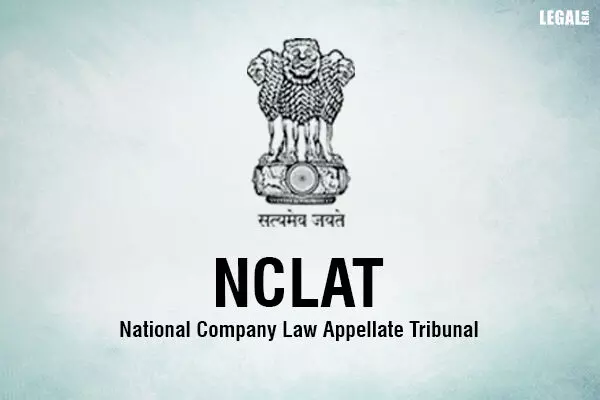- Home
- News
- Articles+
- Aerospace
- Agriculture
- Alternate Dispute Resolution
- Banking and Finance
- Bankruptcy
- Book Review
- Bribery & Corruption
- Commercial Litigation
- Competition Law
- Conference Reports
- Consumer Products
- Contract
- Corporate Governance
- Corporate Law
- Covid-19
- Cryptocurrency
- Cybersecurity
- Data Protection
- Defence
- Digital Economy
- E-commerce
- Employment Law
- Energy and Natural Resources
- Entertainment and Sports Law
- Environmental Law
- FDI
- Food and Beverage
- Health Care
- IBC Diaries
- Insurance Law
- Intellectual Property
- International Law
- Know the Law
- Labour Laws
- Litigation
- Litigation Funding
- Manufacturing
- Mergers & Acquisitions
- NFTs
- Privacy
- Private Equity
- Project Finance
- Real Estate
- Risk and Compliance
- Technology Media and Telecom
- Tributes
- Zoom In
- Take On Board
- In Focus
- Law & Policy and Regulation
- IP & Tech Era
- Viewpoint
- Arbitration & Mediation
- Tax
- Student Corner
- AI
- ESG
- Gaming
- Inclusion & Diversity
- Law Firms
- In-House
- Rankings
- E-Magazine
- Legal Era TV
- Events
- News
- Articles
- Aerospace
- Agriculture
- Alternate Dispute Resolution
- Banking and Finance
- Bankruptcy
- Book Review
- Bribery & Corruption
- Commercial Litigation
- Competition Law
- Conference Reports
- Consumer Products
- Contract
- Corporate Governance
- Corporate Law
- Covid-19
- Cryptocurrency
- Cybersecurity
- Data Protection
- Defence
- Digital Economy
- E-commerce
- Employment Law
- Energy and Natural Resources
- Entertainment and Sports Law
- Environmental Law
- FDI
- Food and Beverage
- Health Care
- IBC Diaries
- Insurance Law
- Intellectual Property
- International Law
- Know the Law
- Labour Laws
- Litigation
- Litigation Funding
- Manufacturing
- Mergers & Acquisitions
- NFTs
- Privacy
- Private Equity
- Project Finance
- Real Estate
- Risk and Compliance
- Technology Media and Telecom
- Tributes
- Zoom In
- Take On Board
- In Focus
- Law & Policy and Regulation
- IP & Tech Era
- Viewpoint
- Arbitration & Mediation
- Tax
- Student Corner
- AI
- ESG
- Gaming
- Inclusion & Diversity
- Law Firms
- In-House
- Rankings
- E-Magazine
- Legal Era TV
- Events
NCLAT: Operational Creditors are only entitled for minimum of the Liquidation Value

NCLAT: Operational Creditors are only entitled for minimum of the Liquidation Value
The National Company Law Appellate Tribunal (in short NCLAT), Principal Bench by its division bench comprising of Justices Ashok Bhushan (Chairperson) and Mr. Barun Mitra (Technical Member), while hearing an appeal filed in the matter of Dharmindra Constructions Pvt. Ltd. and Another vs. Rajendra Kumar Jain, has held that Operational Creditors are only entitled for minimum of the liquidation value.
In the aforementioned case, Kudos Chemie Ltd. and others (hereinafter referred to as Corporate Debtor) was admitted into Corporate Insolvency Resolution Process (in short CIRP). Dharmindra Constructions Pvt. Ltd. also known as Operational Creditor/Appellant is an operational creditor of the Corporate Debtor who was not allocated any amount in the resolution plan, since the liquidation value of the Appellant/Operational Creditor was NIL.
On 17 March, 2022 the Adjudicating Authority approved the Resolution Plan submitted by the Successful Resolution Applicant. The Adjudicating Authority observed that as per the Information Memorandum, the operational creditors were segregated into three categories. First being workmen and employees, who were paid Rs. 20 lakh as against their verified claim of Rs. 18.88 crore. The Next category being, operational creditors relating to Government dues to which payment of NIL is being made by the Resolution Applicant as against their claim of Rs.295.18 crore. The third category being operational creditors (other than workmen & employees and government dues) who were paid NIL as against their claim of Rs. 295.18 crore.
The Appellant/Operational Creditor filed the Appeal challenging the order impugned. The Appellant submitted that the Operational Creditor in the plan has not been allocated any amount, hence, the plan was not in accordance with the provisions of Insolvency and Bankruptcy Code, 2016 (in short IBC). It was submitted that the Resolution Plan require statement that claims of all the stakeholders have been dealt with, however, there was no consideration in the plan about the claim of the Appellant/Operational Creditor.
The Bench observed that the Liquidation value of the Appellant/Operational Creditor was Nil. Even the Operational Creditors that is Government whose verified claim was Rs.295.18 crore were paid Nil. The requirement for the obligation for payment of amount to the Operational Creditor is under Section 30(2)(b) IBC and the plan had not violated the said provision.
"We are of the view that as per the law as exist today, the Operational Creditors are only entitled for minimum of the liquidation value and there being no breach of any of the provisions of the Code, we are unable to interfere with the impugned order," observed the Tribunal and accordingly dismissed the appeal.



